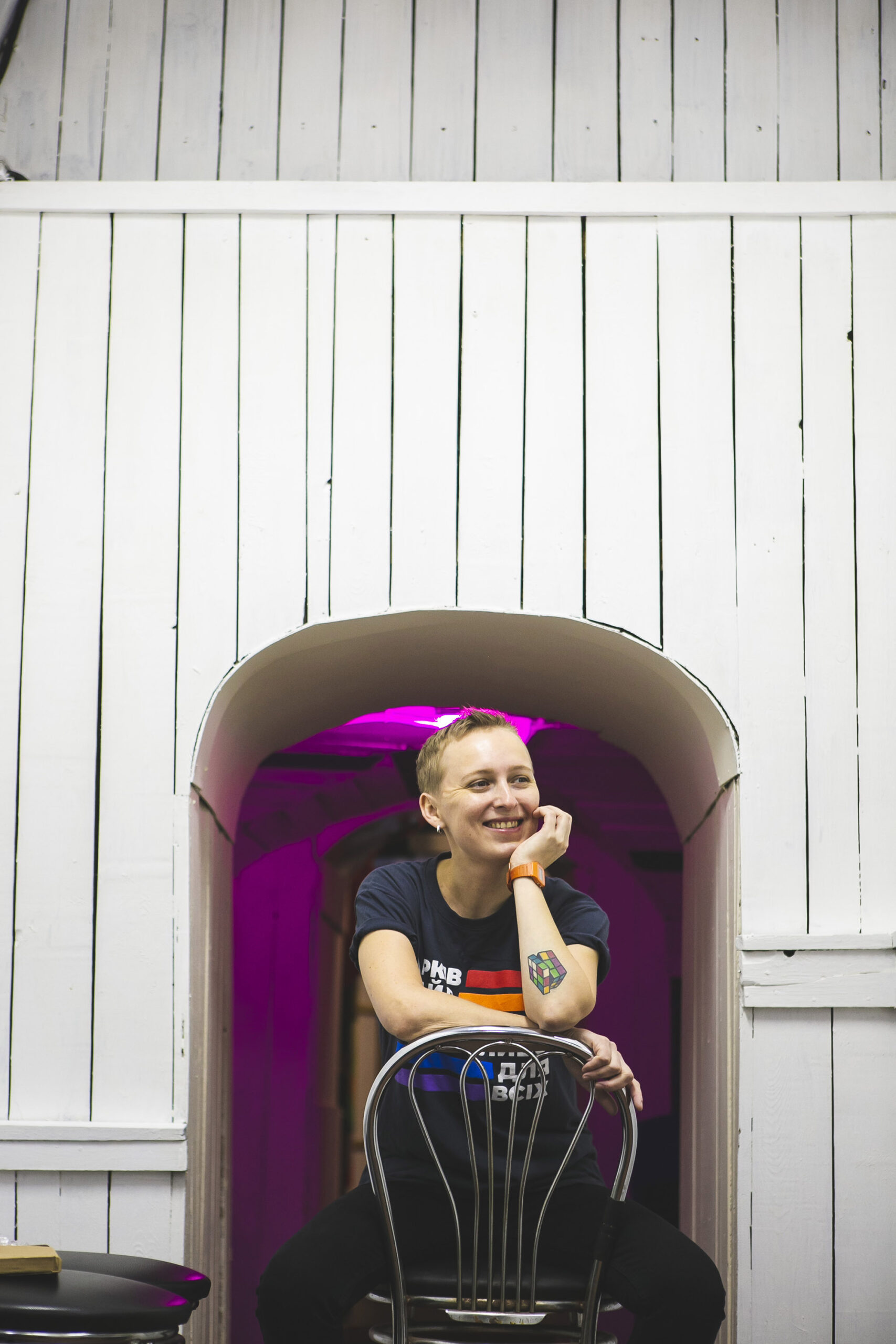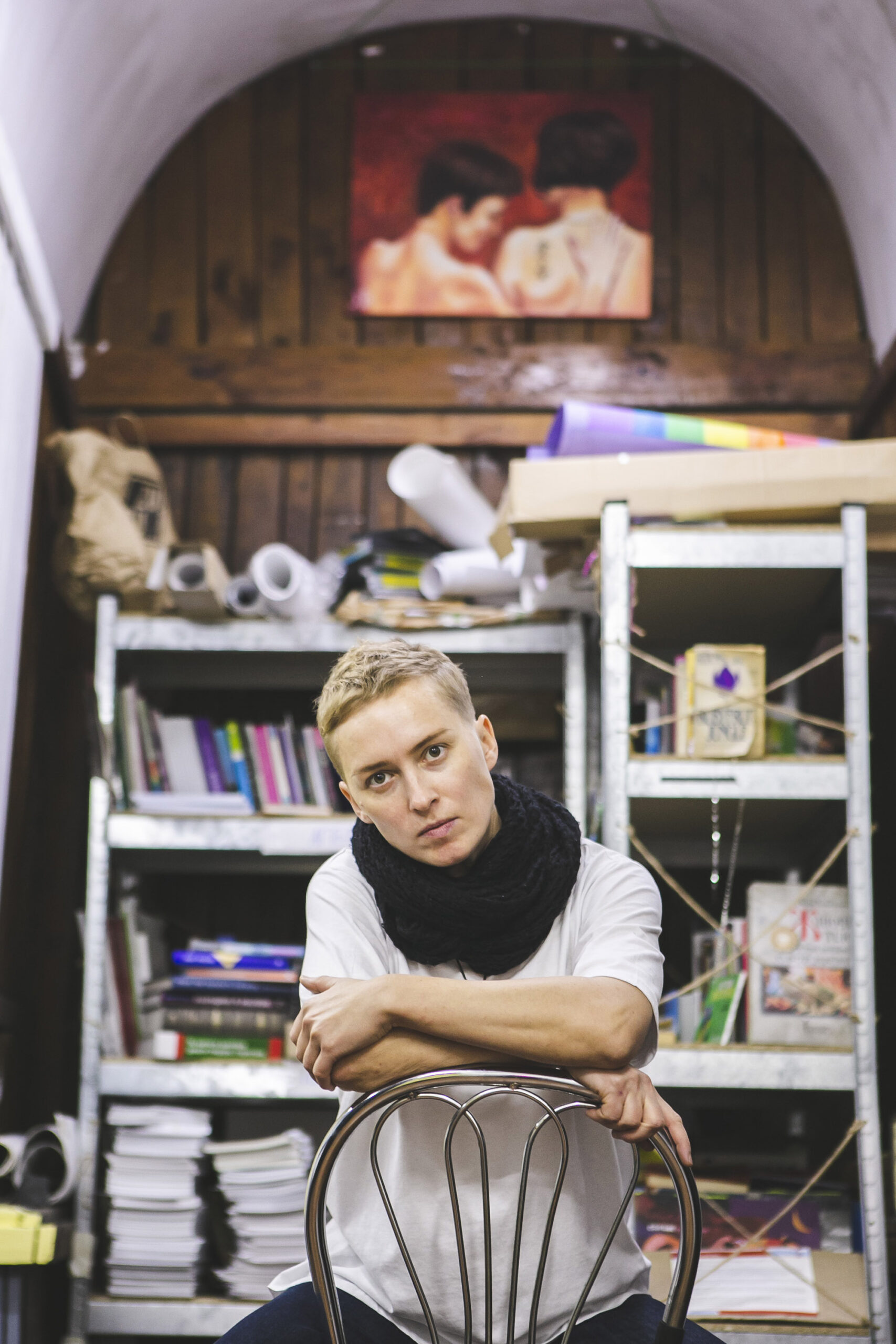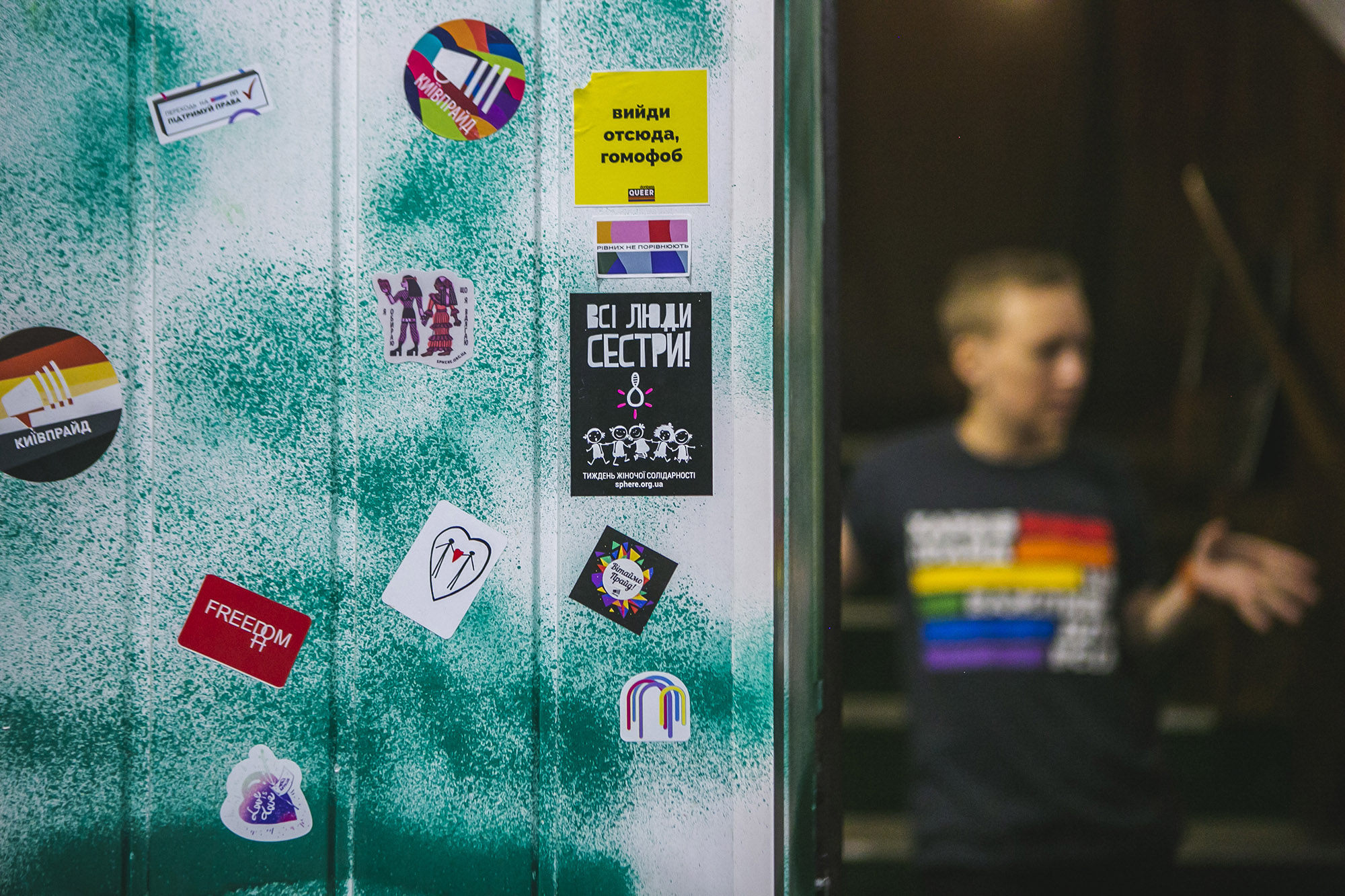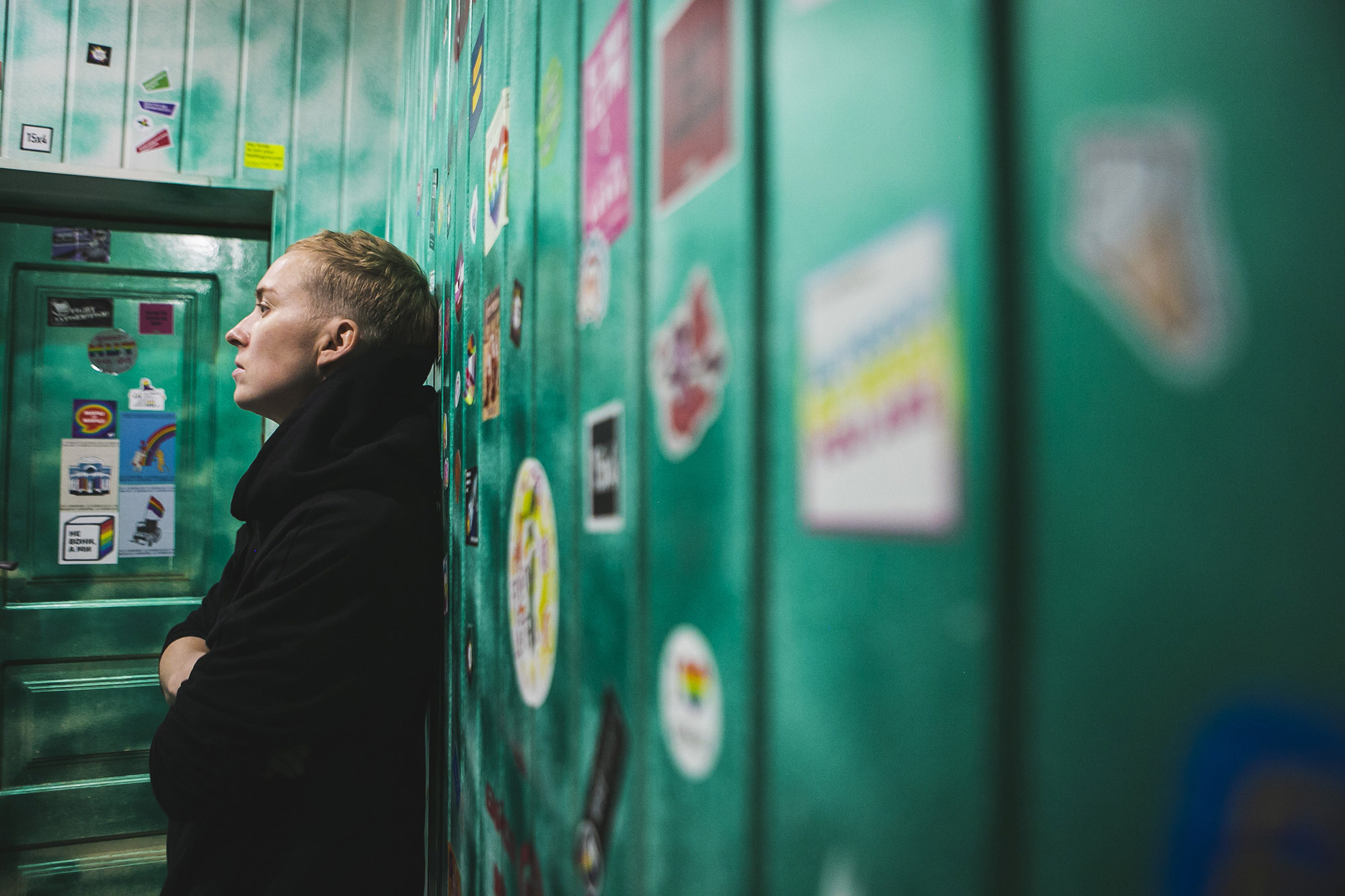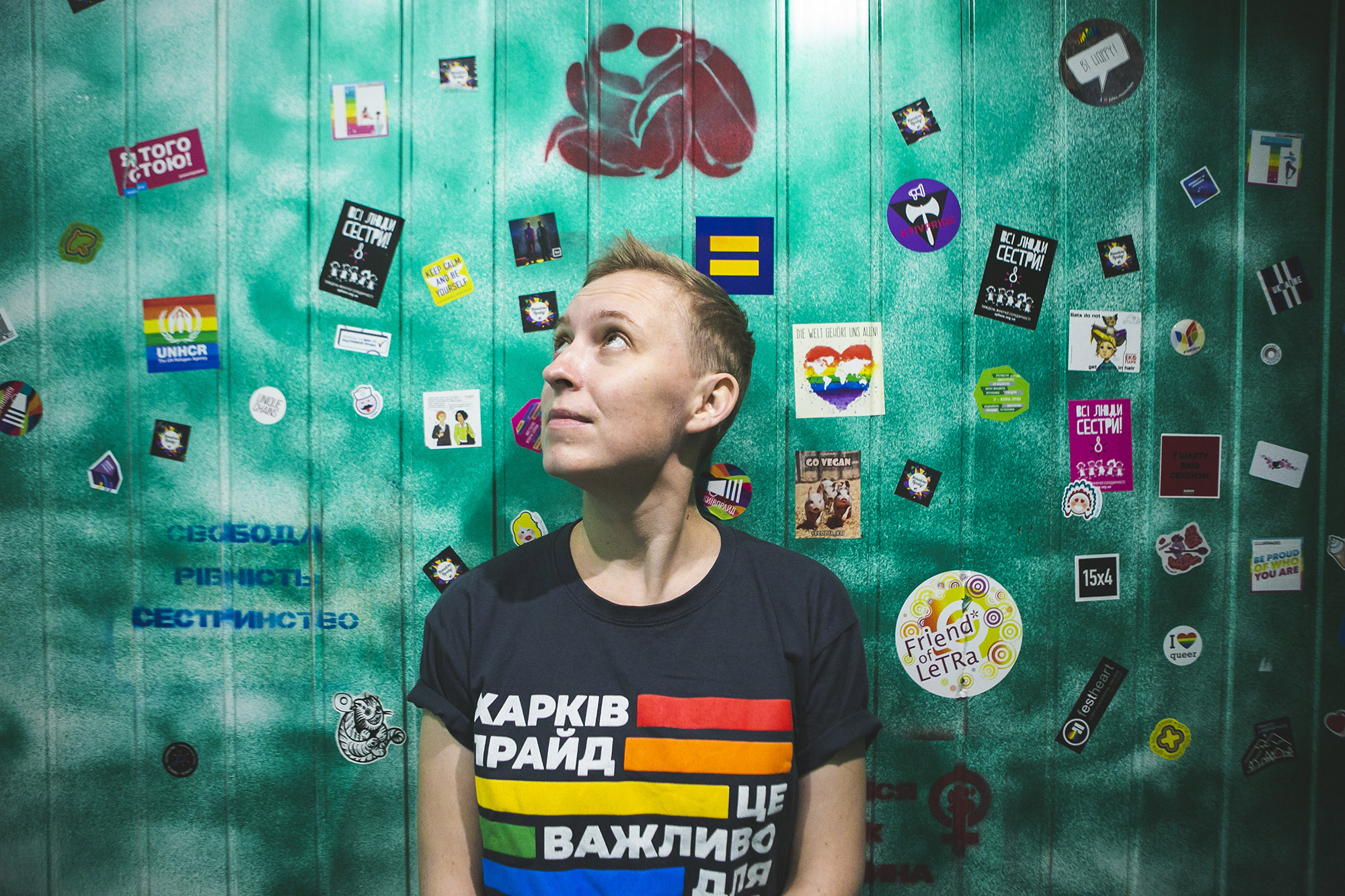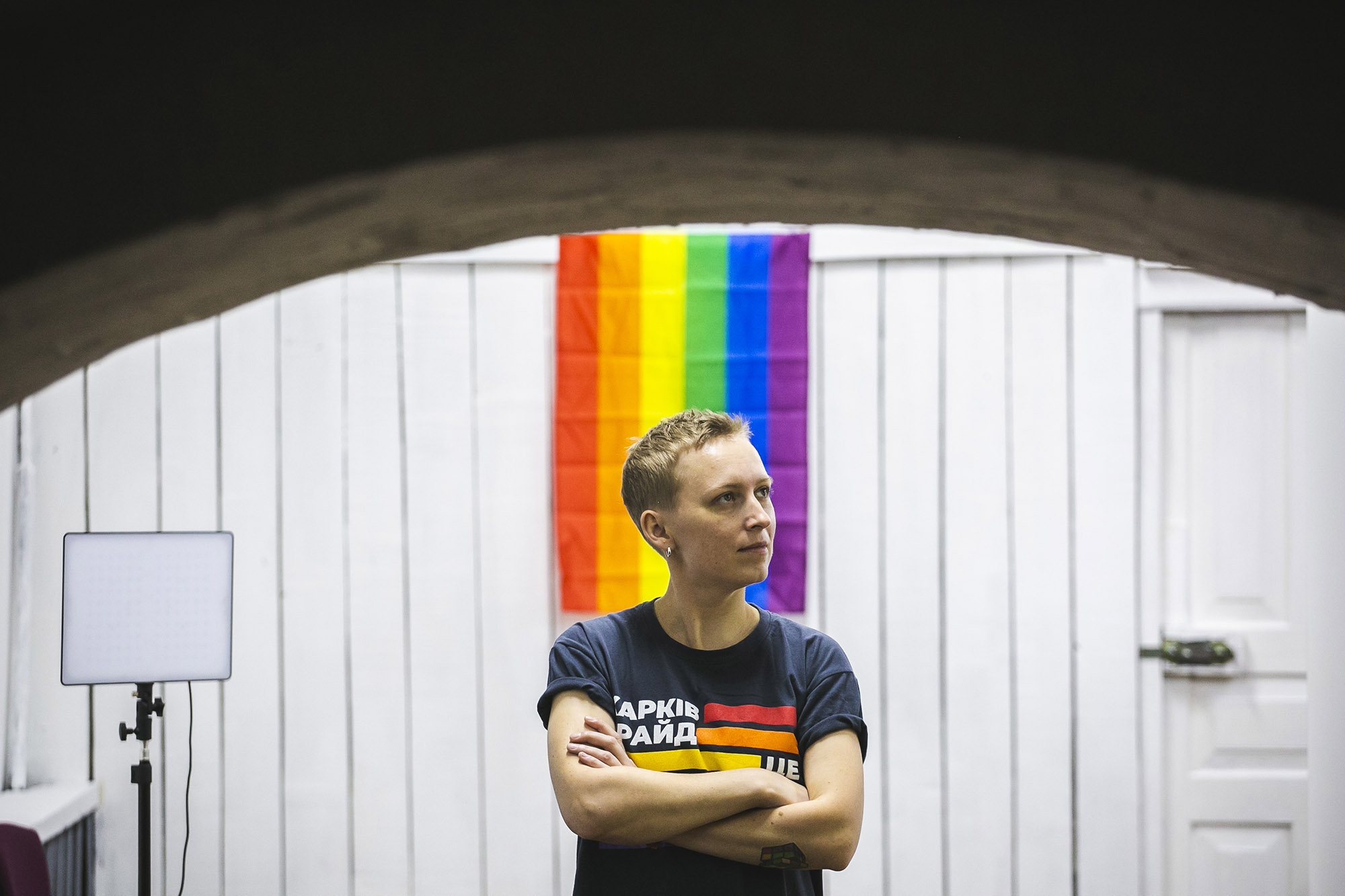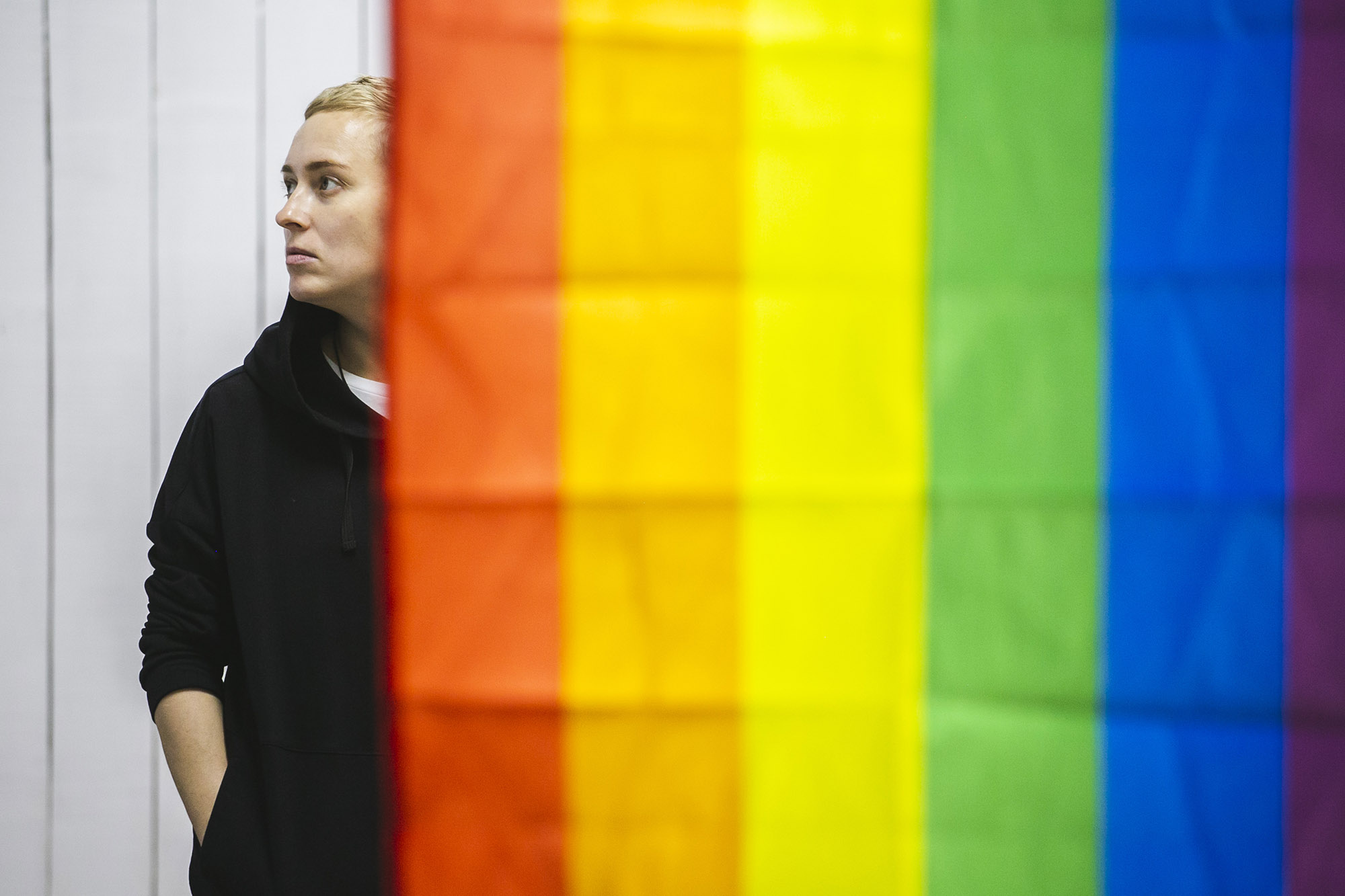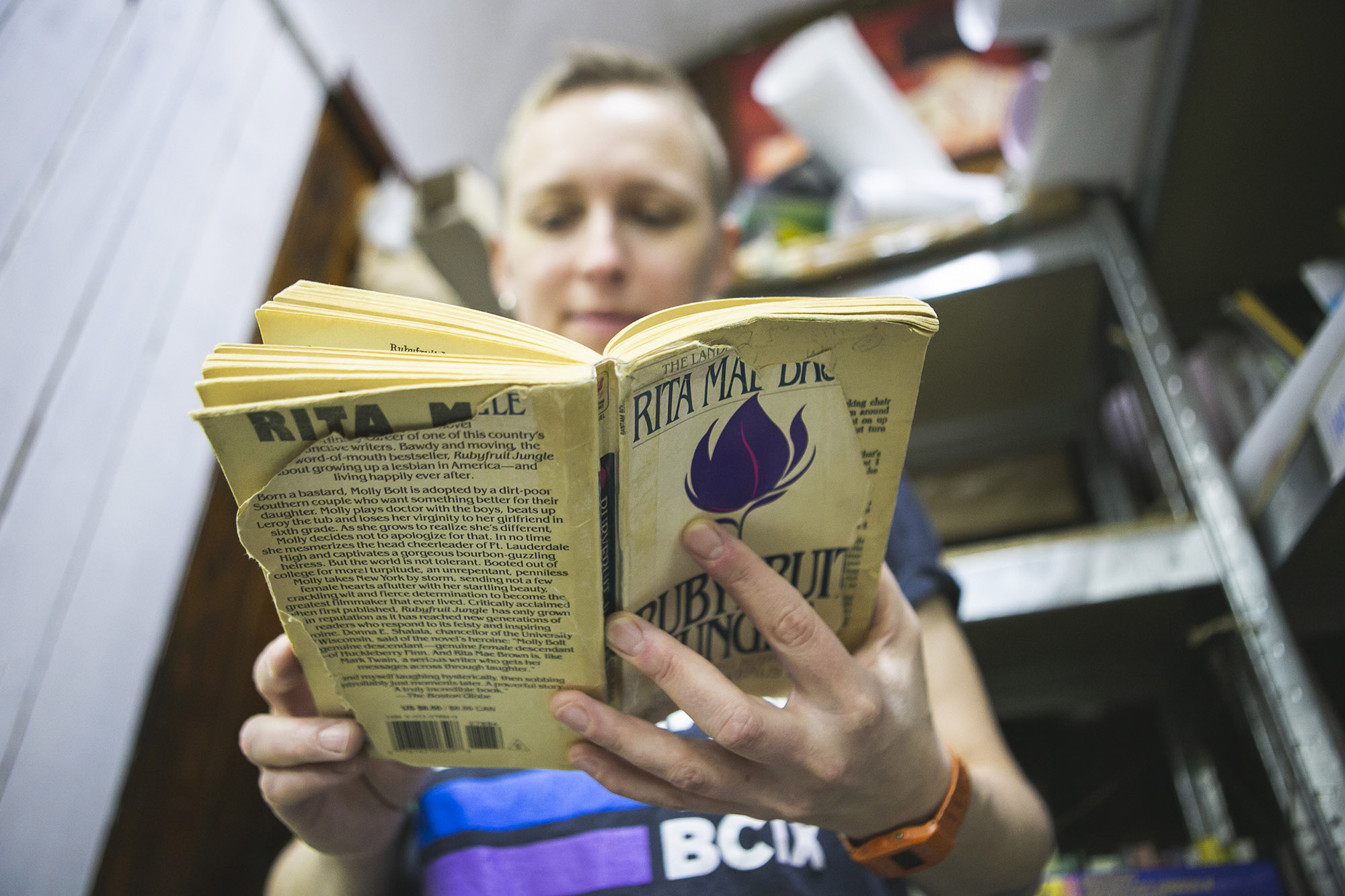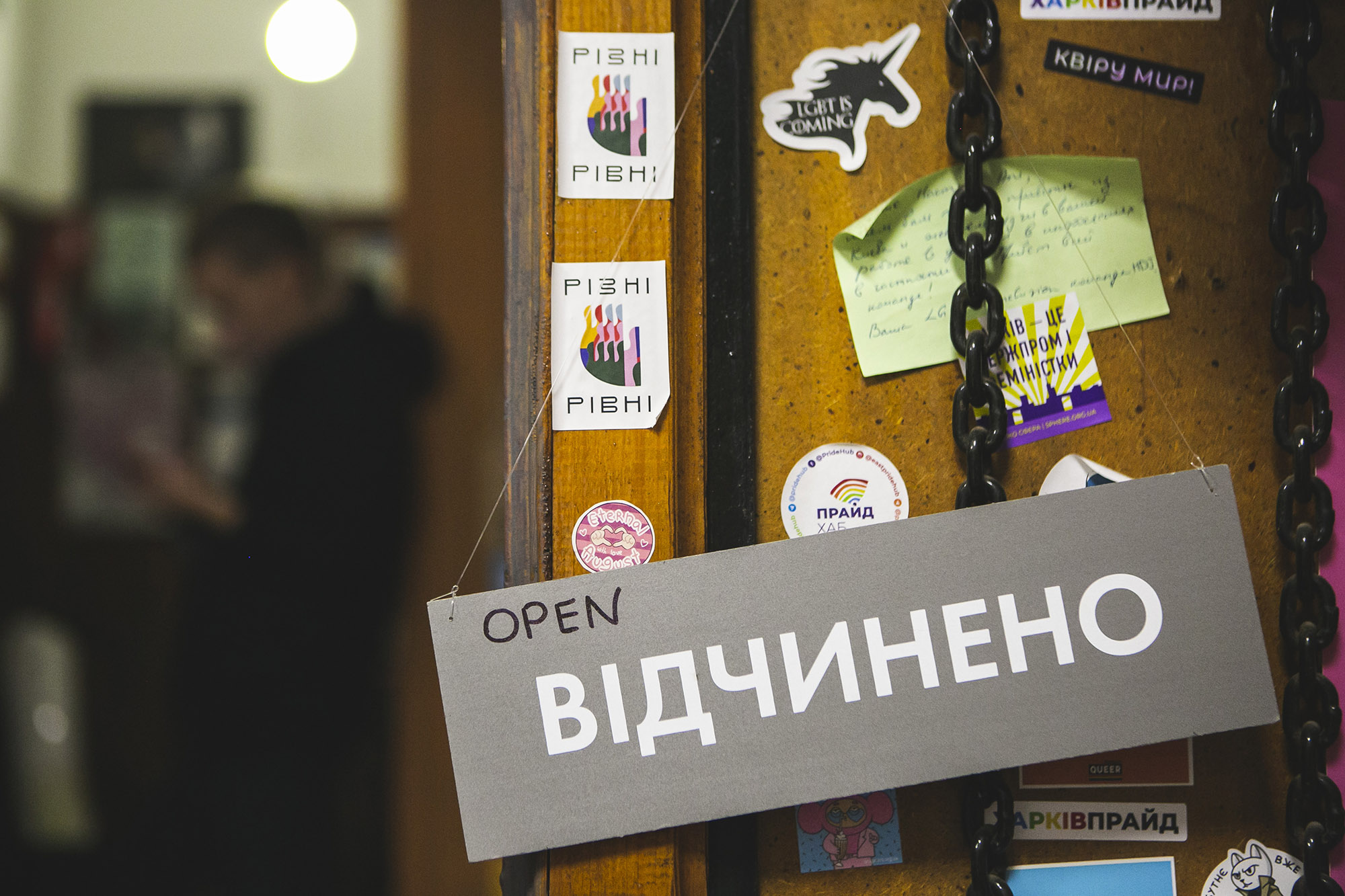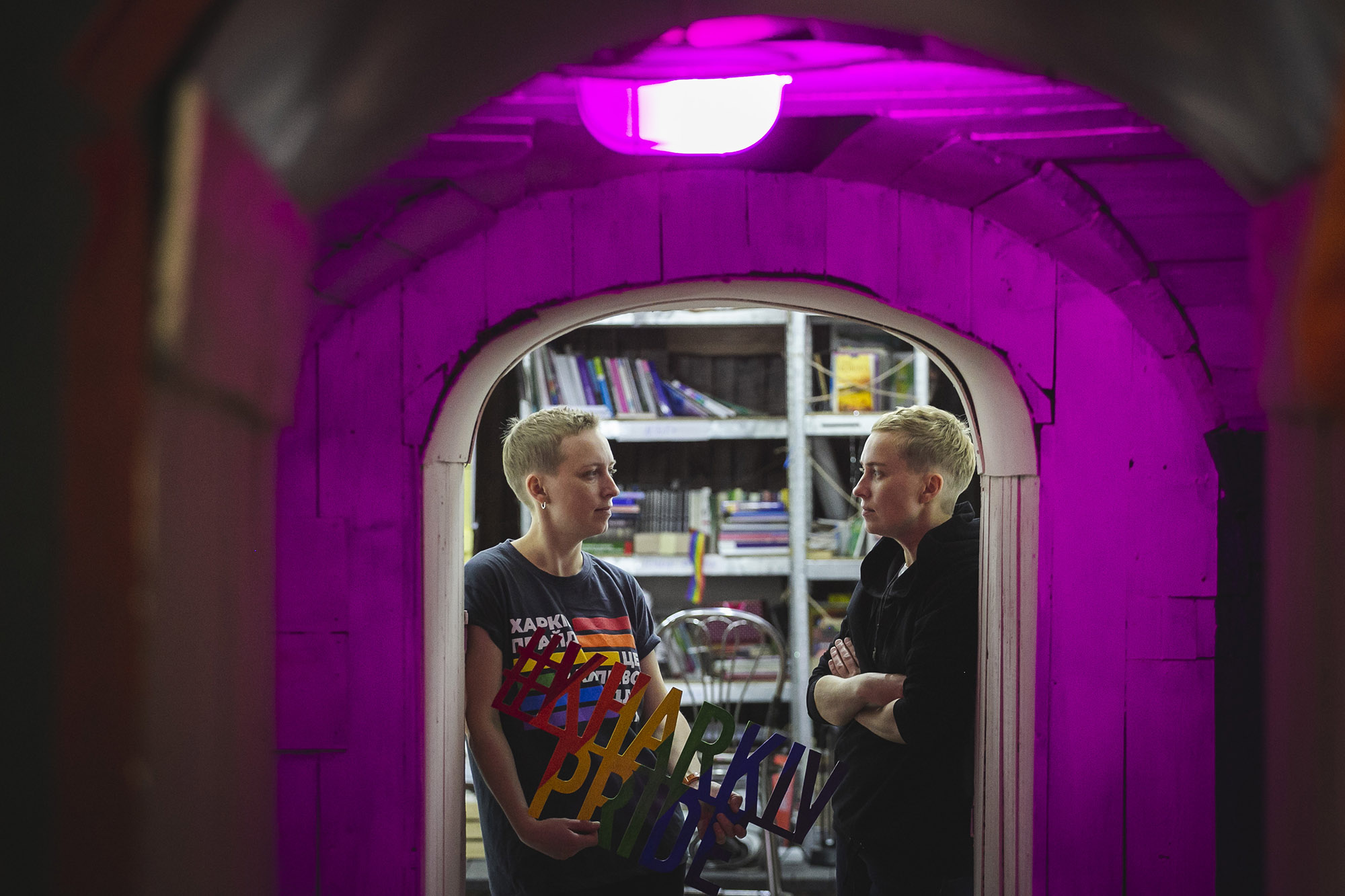
Equals
On July 20, 1983, in a small town in the Sicheslav region, a woman named Liubov gave birth to two girls. Vira was the first to see the world. Twenty minutes later, Nadia announced her arrival with a cry. Full of love for the twins, their mother had no idea that as adults her girls will be forced to fight for their own, natural right to love.
Self-awareness
Nadia and Vira were raised in an ordinary family. While the parents worked shifts at the factories, the girls were playing in abandoned construction sites with boys—the sisters were not interested in dolls. Among their favorite toys, they had two polar bears: Misha and Masha. Today, as adults, the sisters cannot remember who had the girl-bear and who had the boy-bear.
“I’ve never felt attracted to men,” says the younger one. “While Vira tried dating guys at the age of 13-14, I was never interested in them. If I’d had Misha, I wouldn’t understand who I am,” she laughs.
We met at the Central cafe, in the very heart of Kharkiv. For the last 18 years, Vira and Nadia have been living in a city of millions—they are more comfortable here. As teenagers, they both realized that they were lesbians.
“I started dating a guy. We even had physical intimacy, but without penetration. And then at the age of 15 it was as if something clicked in me—I suddenly realized that I was not interested in relationships with men. I just felt that I didn’t want to deal with them,” Vira recalls. “I didn’t understand if something was wrong with me, so I focused on my education to distract myself. And at the age of 16 I kissed a girl for the first time, and since then the world has never been the same,” she smiles.
“As for me, there was no sudden realization—I just grew up knowing that I was attracted to girls. Back then, there was no internet, so I didn’t know where to find out more about whether there were other people like me,” Nadia adds.
At first the sisters hid their self-awareness from everyone—even from each other. Until one night at a party, Nadia saw Vira kissing a girl.
“I was so happy! Now we finally had someone to talk to and, from then on, have always supported each other,” Nadia remembers.
“When it became clear that I was lesbian, I was a little scared. Most people don’t accept it. That’s why at first I called myself bisexual—this provided me with a buffer zone, as if there was always a way back. As if there was still a possibility to be supposedly ‘normal’,” Vira says.
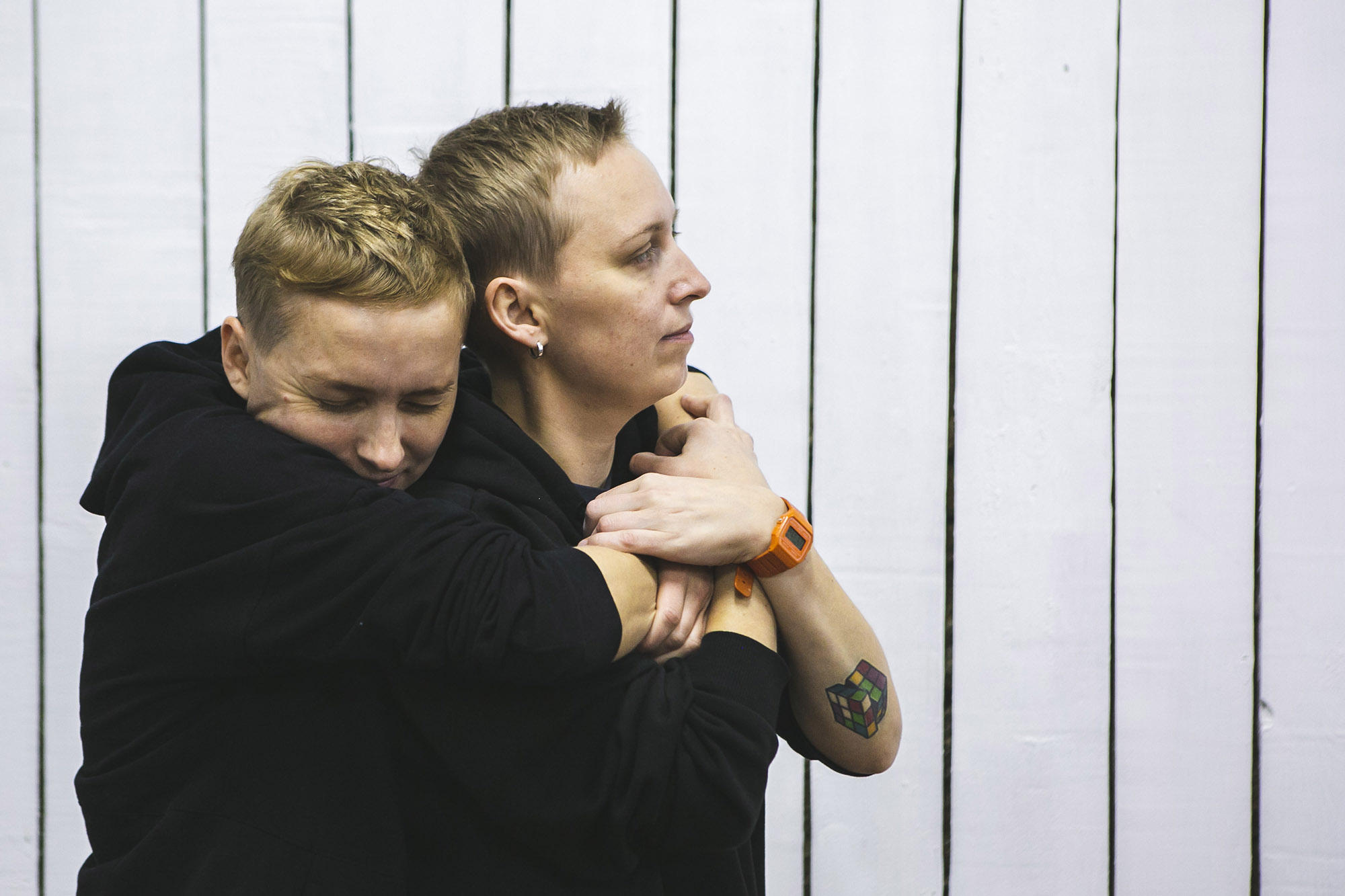
“Or you said it so that they would leave you alone,” her sister suggests.
“Something like that: “At least I am not a lesbian!” “I was trying to convince myself that it was only temporary,” Vira explains. “This is a difficult issue for all LGBTQ people. Because homophobia in our society is so rampant that there is even internal homophobia in LGBTQ people; it is difficult for them to accept who they are. In addition, relatives and friends want the girls to date boys, not other girls. Because that is normal, and attraction to women is not. So the pressure is great. It took me years to finally realize that I was a lesbian and I liked it.”
From a list to community
As soon as the girls opened up to each other, they realized that they had to leave their home town—a small place where everyone knew each other. The girls were not as worried about themselves as they were about their relatives—they did not want to hurt their parents who would have to overhear neighbors gossiping on the streets or in shops.
Two years before entering Kharkiv National University of Radio Electronics, the twins hit the books on mathematics and physics—they had to qualify for free tuition, because they had no other option.
“When Nadia and I realized that we were going to another city, we started fantasizing about who we would meet there. We thought that as soon as we settled in at the dorm, we would immediately meet “the one” for Nadia and for Vira,” one of the sisters recalls.
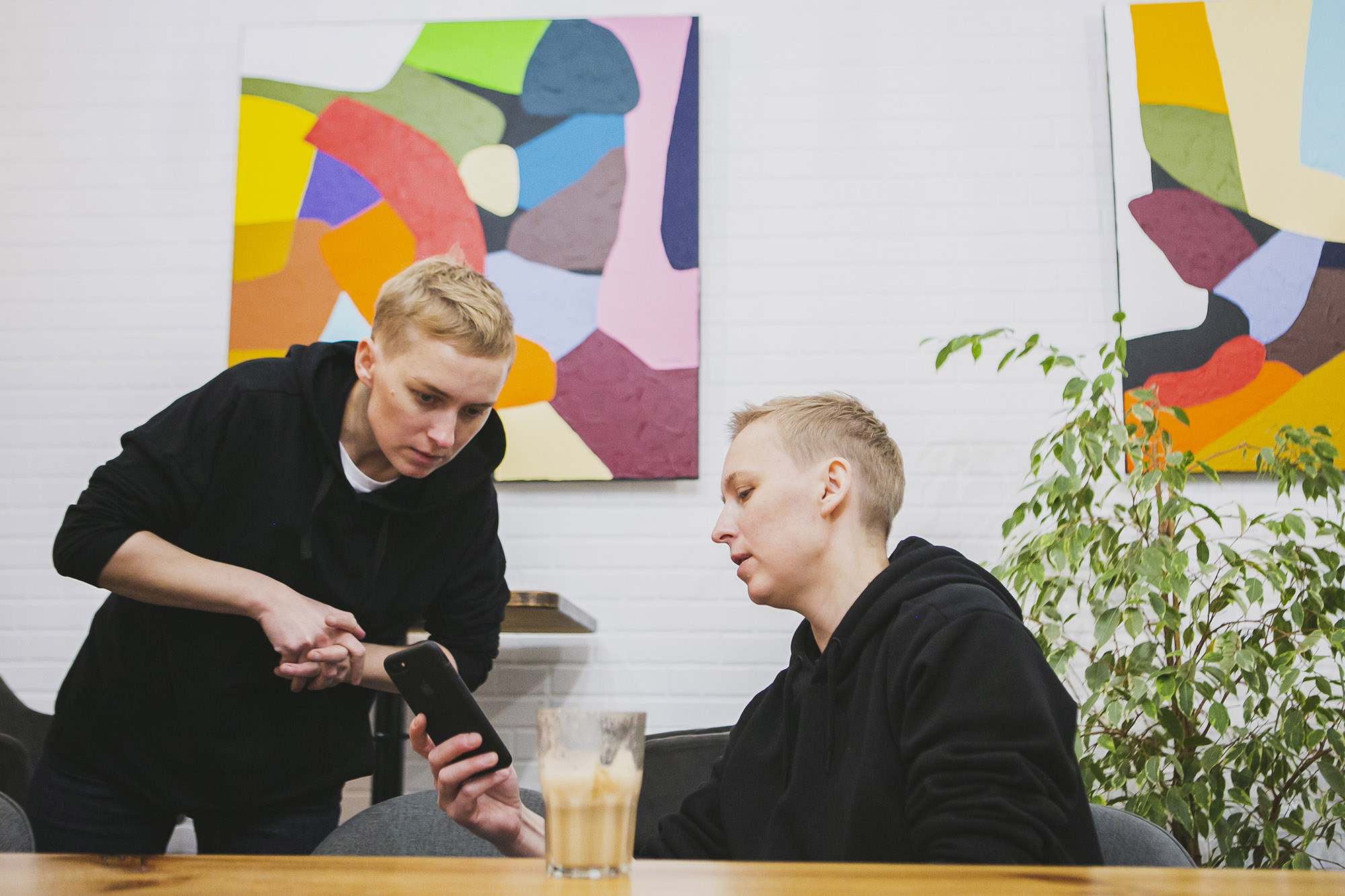
But the student years passed, and their circle did not expand. The only person Vira and Nadia could talk to openly was a gay boy a year younger. They are still friends—it was extremely important for all of them to have someone with whom they could share their dreams and desires, and not hear condemnation in return. The girls did not hide their homosexuality, but also did not make it public at every turn.
“This is how we spent our student years: in full confidence that there was only one gay boy and two lesbians in Kharkiv. It was a failure!” Vira makes a helpless gesture.
“You are such a drama queen!” Nadia interrupts, smiling. “We just didn’t know other people in our future community.”
The first acquaintances with other LGBTQ people started with a special chat—there were no social networks or dating apps at the time.
“Vira had a notebook—names, telephones. . .” Nadia draws imaginary columns with her finger on the table. “And every day she would add a line or two. Vira dreamed of bringing everyone together! And we started doing it. It was 2005.”
Smiling, Vira recalls how the first “community mobilization” took place:
“We sent text messages to each contact from this notebook about when and where the next meeting would take place. At the time, it cost a lot of money! Eventually, there was no need to send all these texts, as everyone knew that there was a place to meet, a so-called ‘pleshka’ [in post-Soviet cities, a place where gay people would gather. In Kharkiv, it was a hundred meters from Freedom Square, it does not exist now—Auth.],” says Vira. “Every time more and more girls would come, and soon you could say that we turned the ‘pleshka’ into a lesbian space.”
After writing 100 names in the notebook, Vira stopped keeping a record—everyone was already quite familiar with each other. It was then that the sisters met LGBT activist Anna Sharyhina.
For the right to be with you
Anna Sharyhina graduated from Kharkiv Pedagogical University with a degree in psychology. Later, while studying for a postgraduate degree at a Kharkiv university, she conducted research on gender, sexuality, and power. Eventually she became a co-founder of a women’s initiative group, and later co-organizer of the first public marches for equality.
In 2016, she and Vira organized a march in the capital, which was to be attended by up to 2,000 people. But all that would come later.
Then, in 2006, Anna simply learned that Vira, Nadia and another girl were trying to mobilize the community, and offered them support—free psychological counselling.
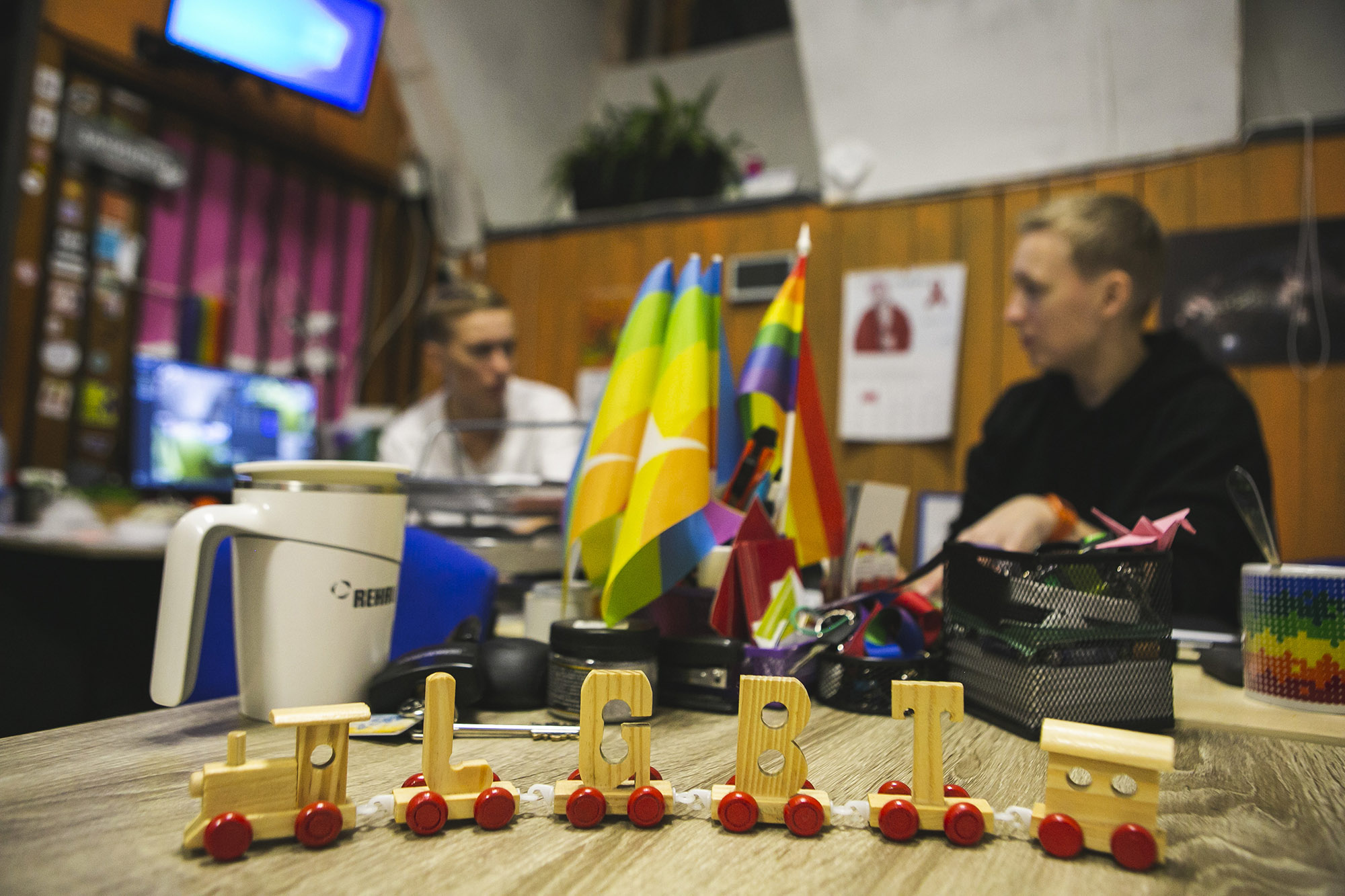
“Also, she invited me to a camp for lesbian leaders from the regions of Ukraine. At first I thought it was not for me. There were girls from other cities who talked about what they were doing for the lesbian community. However, in conversations with them, I realized that I wanted to be an activist, too! I wanted to fight for LGBTQ people to have the same rights as other Ukrainians—no more, no less. It is a matter of the right to marriage, to receive inheritance, to dispose of common property. I want us to have the right to adopt a child in the event of the death of a partner. In case of an accident, to have the right to visit a partner in the intensive care unit,” Vira lists.
To achieve this, they have to fight. As a result, the girls became one of the founders of the Kharkiv Women’s Association Sphere.
Sphere is an organization that unites women regardless of age, marital status, ethnicity, sexual orientation, religious, political or other beliefs. Currently, Sphere is managing two major projects in Kharkiv: Kharkiv Pride and Women’s Solidarity Weeks. Sphere also manages the PrideHub community center, which brings together the LGBTQ community, and several human rights projects in Ukraine. In 2019, Kharkiv Pride was held for the first time in the city—a march to protect equal rights and opportunities for people, regardless of their sexual orientation and gender identity. Kharkiv Pride was held under the slogan: “Kharkiv for everyone. Safety for everyone” and was attended by about 3,000 people.
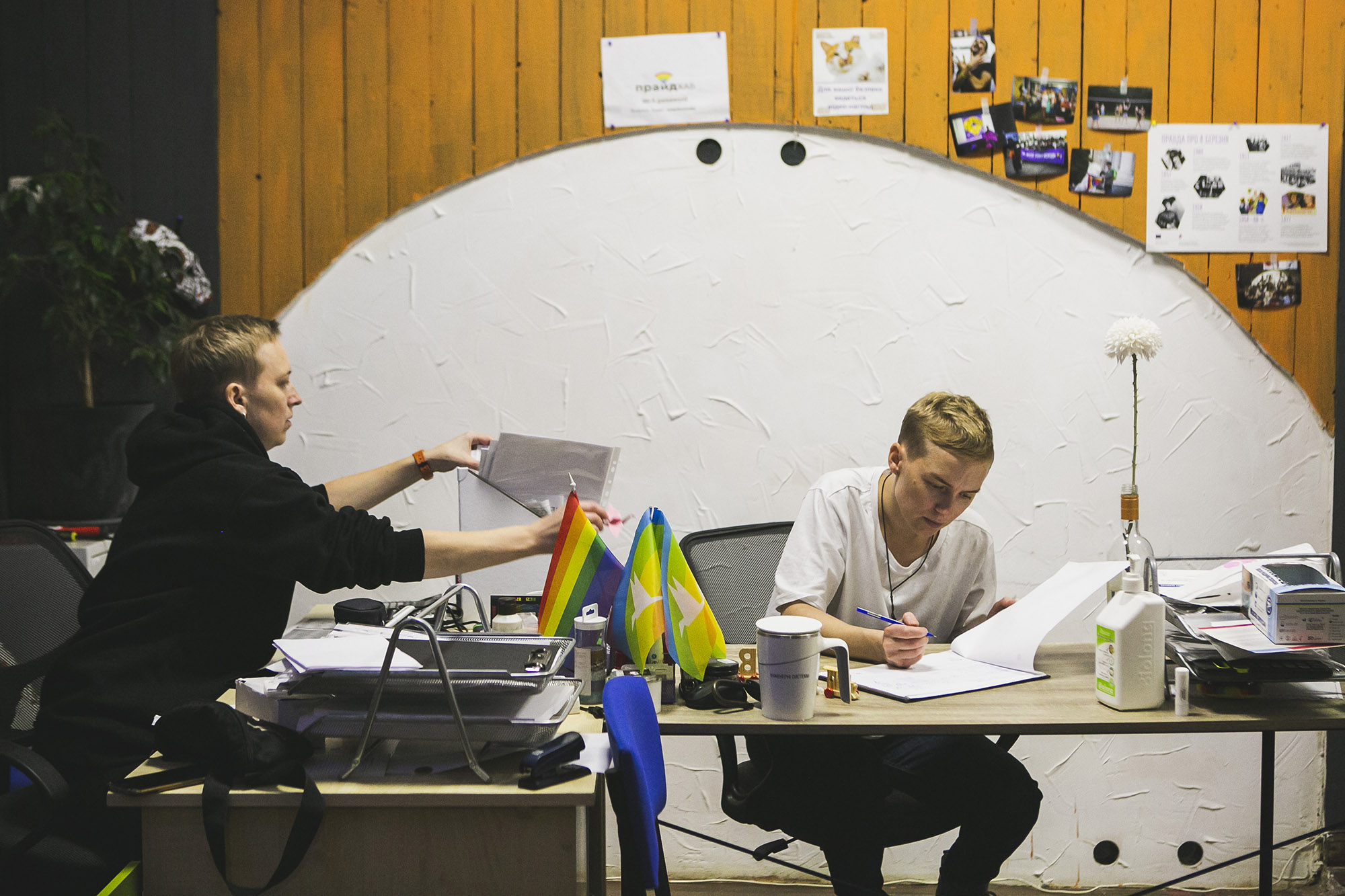
“It is an incredible feeling!” Vira recalls. “It was one thing to mobilize the community 15 years ago, when we had to seek out each meeting participant. But it is a very different thing now—you simply announce Kharkiv Pride and hundreds of people come to you!”
There are currently 4,200 subscribers in the PrideHub Facebook community, and 7,200 people have subscribed to Kharkiv Pride. But, according to Vira, there are a lot more LGBTQ people in Kharkiv. Still, not everyone is ready to come out.
“Our parents are still at the stage of trying to accept us”
Vira had the chance to come out to her parents for the first time at the age of 22. One day she texted the girls written in her notebook to let them know the time and place of the next meeting. The message contained the phrase: “Come, only lesbians will be there.” But, accidentally, she sent one of those texts to “Mom”, instead of “Masha.” The text message was typed in Latin, and neither her mom nor dad understood the transcription, so the father went to the store for help to read the message from their daughter.
“Later dad called me and said: ‘I am afraid of being publicly shamed.’ It was the first thing he said to me. And then he asked: ‘Are you a lesbian?’ And I lied. Now I often talk about what happened. . .
I regret that I did not use the chance to overcome the homophobia of my parents at the age of 22 and live a life in which my family knows who I am. They did not find out about it until we turned 35,” Vira says. “Our parents are still trying to accept us. Their attitude is constantly changing: sometimes they are angry, other times they are sorry. For a while, they were both blaming themselves. But this is no one’s fault. It is what it is.”
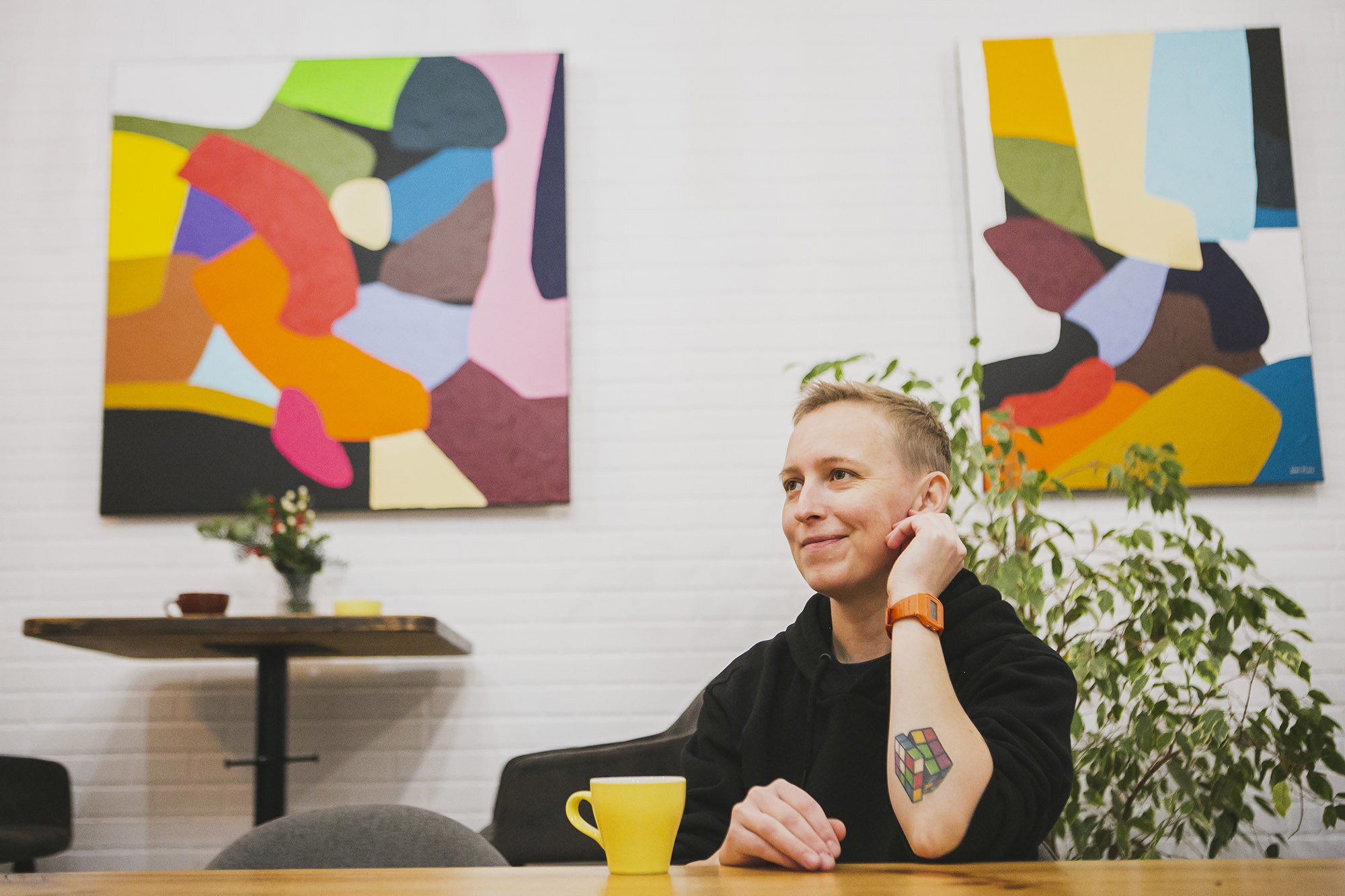
They held a sincere conversation with their parents about it only in 2017. At that time, Vira was helping Anna Sharyhina, with whom they were partners at the time, to organize the equality march in Kyiv. In the news on one of the central TV channels, the parents saw Anna. Her family knew that Vira lived with her, but she was introduced as a friend with whom they rented an apartment to save money.
“Vira has a Rubik’s cube tattoo on her arm, it is not rainbow-colored, but simply multi-colored. Because the Rubik’s cube is multi-colored by nature. But our mother thought it was rainbow-colored. She called me and started saying: “Well, at least you’re normal, so I’m calling you to persuade Vira to become normal,” Nadia recalls. I had to explain to my mother that both of her daughters were normal. And both were lesbians.”
“I get the feeling that they always had an idea what was going on. Because at some point we just stopped talking about our relationships. We were about 30 by that time. But they still tried to convince us that this was wrong: “Look, maybe you’ll go and have a cup of tea with a male colleague and your life will change for the better—you will get married and have children,” Vira sighs.
“Yeah, and he will have a car and an apartment,” Nadia adds.
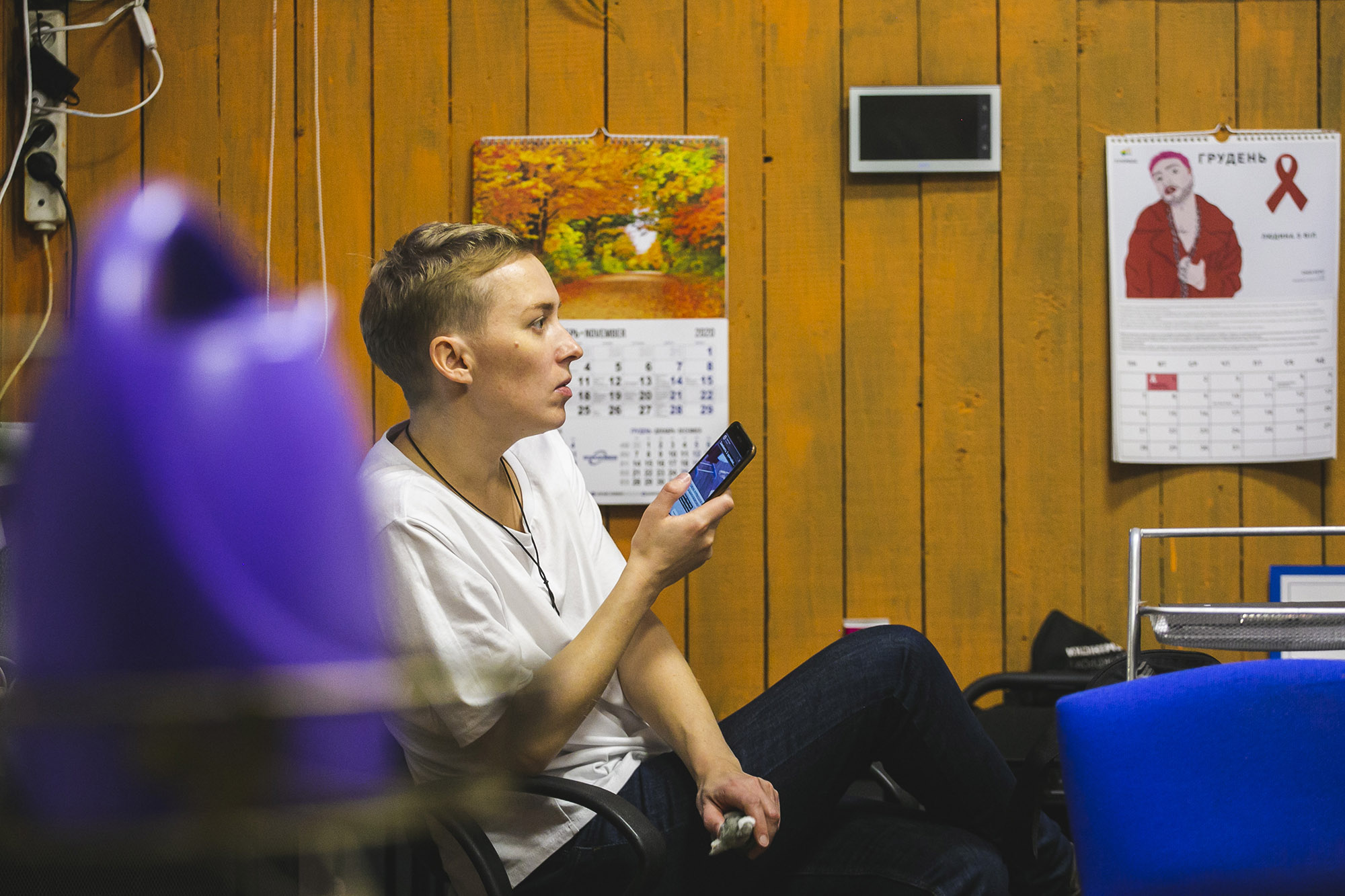
The sisters continue to visit their parents. At least four times a year.
“They are already of respectable age. And they are wonderful, they love us. I do not hold a grudge against them. They did everything they could for us and gave us everything they had, the way they could. I am grateful to them for their love,” Vira says.
“We just know how to get along”
The sisters work for an IT company. According to Vira, they “code away”. They are openly gay at work, and no one has a problem with it.
“Nadia and I neither hid it nor talked about it. At some point, I started bringing rainbow flags and inviting people to rallies. And then it became clear that our CEO was aware of it and was okay with it all,” says Vera.
According to the sisters, they have never lost any close friends after coming out to them. On the contrary, they have always been supported. Also, they have never been exposed to open aggression because of their orientation.
“We just know how to get along with others. How to make friends with good people. And we are surrounded by such people,” Nadia concludes.
But due to their activism, the girls constantly experience pressure and aggression. This year alone, PrideHub has been attacked 11 times, mostly by right-wing radical organizations. Many criminal cases have been opened, but none under Article 161 Violation of the Equality of Citizens Depending on Their Race, Nationality, Religion, Disability and Other Grounds. After all, no matter which article is applied, the cases are almost always closed.
“I am constantly called as a witness—I am tired of running from pillar to post. We have the Kharkiv Human Rights Group, they help us with legal issues. I am confident justice will prevail,” Vira says. “Yes, it is a difficult way to be openly gay. But I think it is worth it. Many countries have already gone down this path. In countries where human rights are truly respected, you will never be insulted for who you are. They have done what we are doing now. I am sure that nothing will stop us and we are doing what we should. And in the future we will go to Pride not to defend our rights, but to celebrate the fact that we already have them.”
Therefore, the sisters are certain: they will march and rally until their demands are heard and gays and lesbians are treated equal to heterosexuals.
“No one but us will protect our rights,” Nadia says passionately. “And the louder we speak, the faster we will gain an equal footing in society. We are not asking for anything unreasonable: we just want to have the same rights as any other person. We want to feel safe in our own country.”
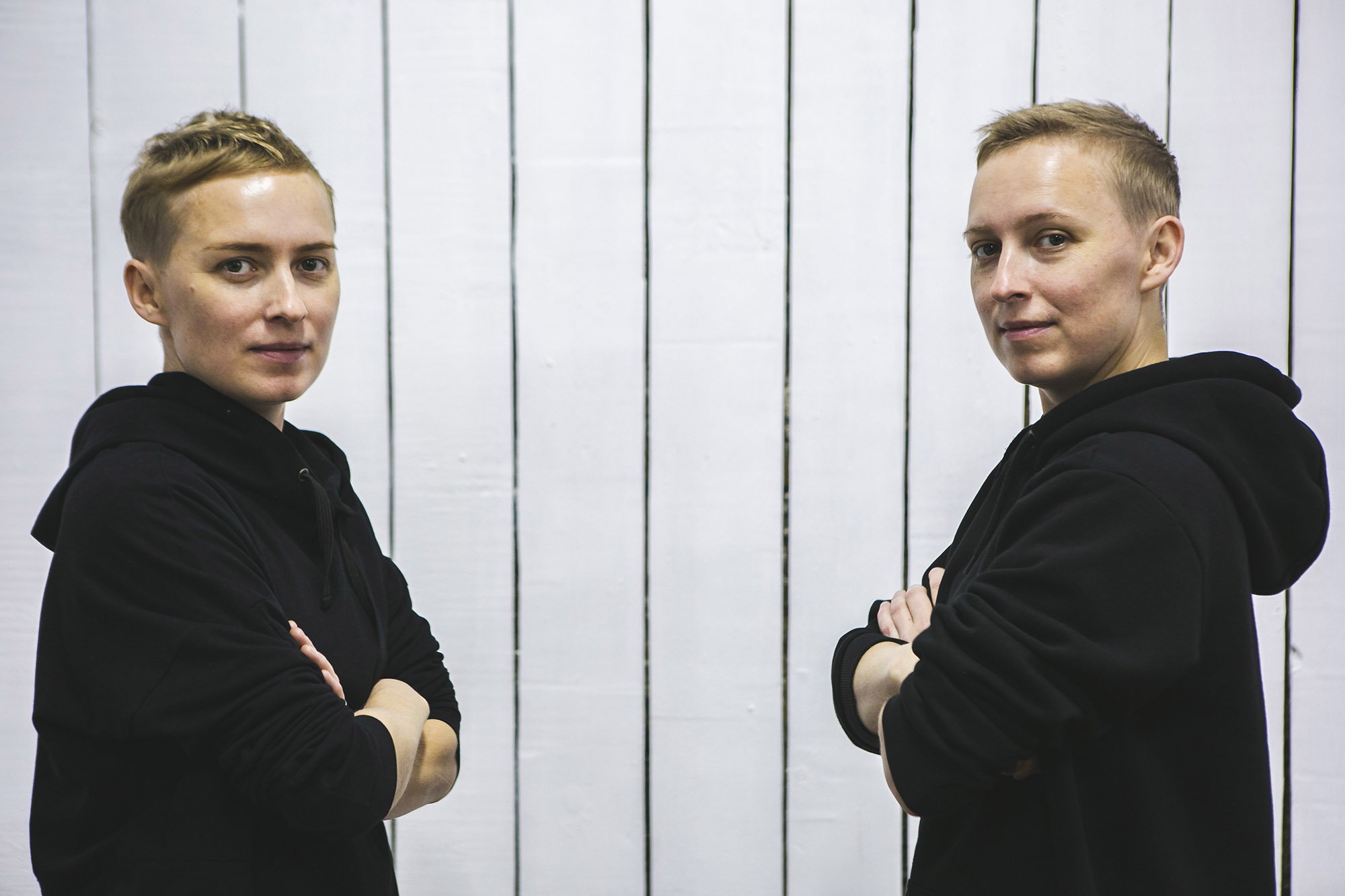
A waiter approaches our table in the coffee shop and gestures that the coffee shop is closing. Finally, I ask the sisters about their dreams.
“As activists?”
“No. What do Nadia and Vira Chernihin dream about?”
“I want to go to the sea,” Nadia laughs. And then she gets more serious: “I want to love and be loved. To be with my partner. We want gays and lesbians to have the right to marry. Because the word “marriage” is magical. If such families are allowed by law, then even parents will no longer have the right to say that it is wrong. If gay marriage is allowed, most other issues will be resolved by default.”
“And then we will go to the sea,” Vira smiles.
“We sure will!” her sister replies.
In November 2020, for the first time in Ukraine, an LGBT couple entered into a partnership agreement—an alternative document to an official marriage certificate. It covers legal issues such as the division of property after a break up, child custody if one of the partners dies, and access to intensive care or pre-trial detention centers should one of the partners be taken there. Yet, according to lawyers, the document is purely declarative. Systemic changes to the equality of rights require government intervention.
[This story was created with support of the Royal Norwegian Embassy in Ukraine. The views and opinions expressed in this publication are those of the authors and do not necessarily reflect the official position of the Norwegian government.]
Have read to the end! What's next?
Next is a small request.
Building media in Ukraine is not an easy task. It requires special experience, knowledge and special resources. Literary reportage is also one of the most expensive genres of journalism. That's why we need your support.
We have no investors or "friendly politicians" - we’ve always been independent. The only dependence we would like to have is dependence on educated and caring readers. We invite you to support us on Patreon, so we could create more valuable things with your help.
Reports130
More





